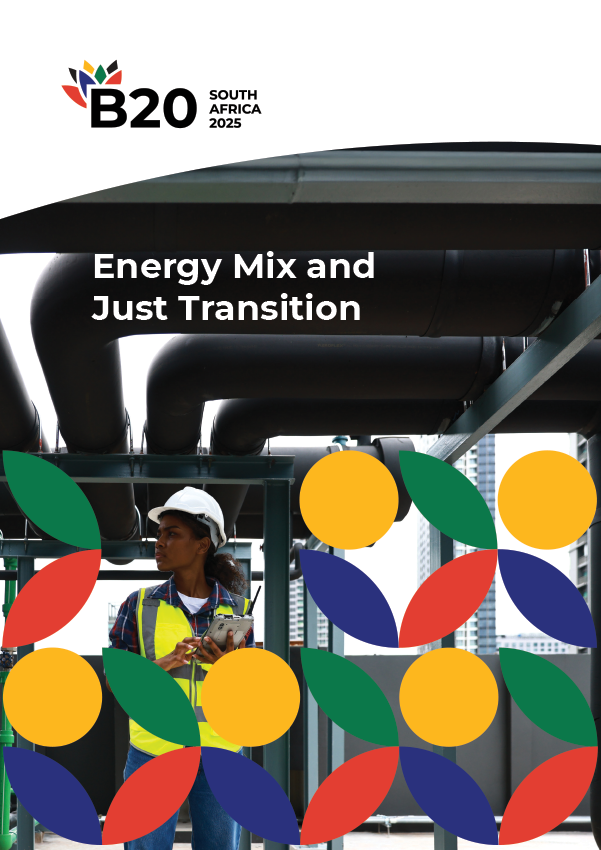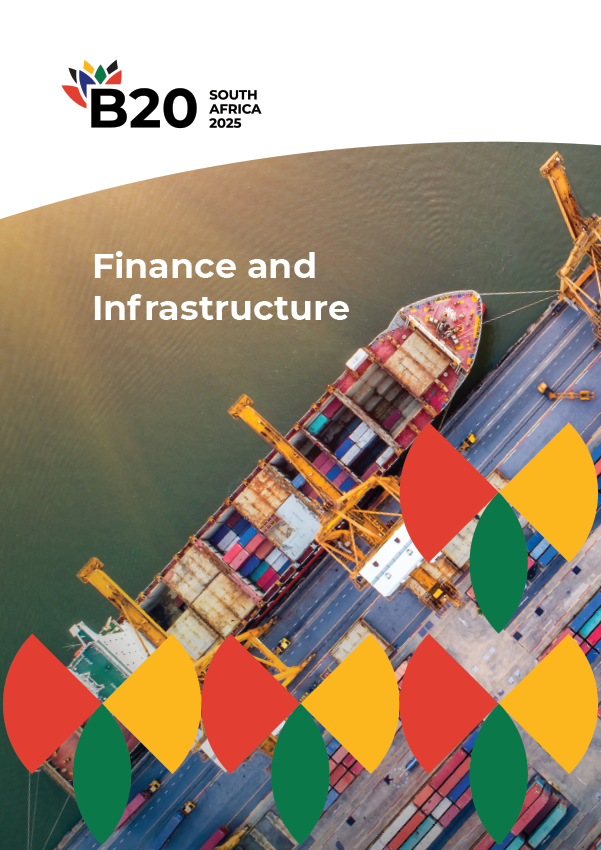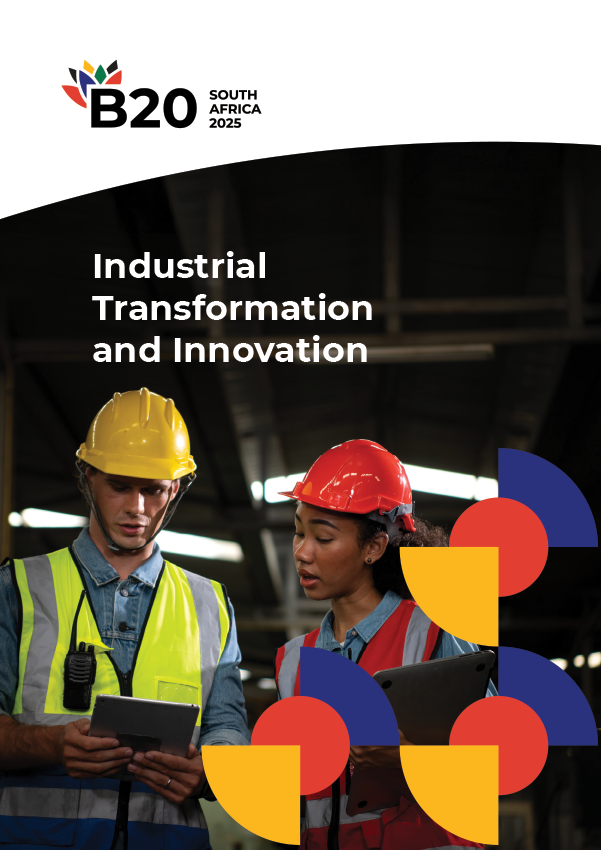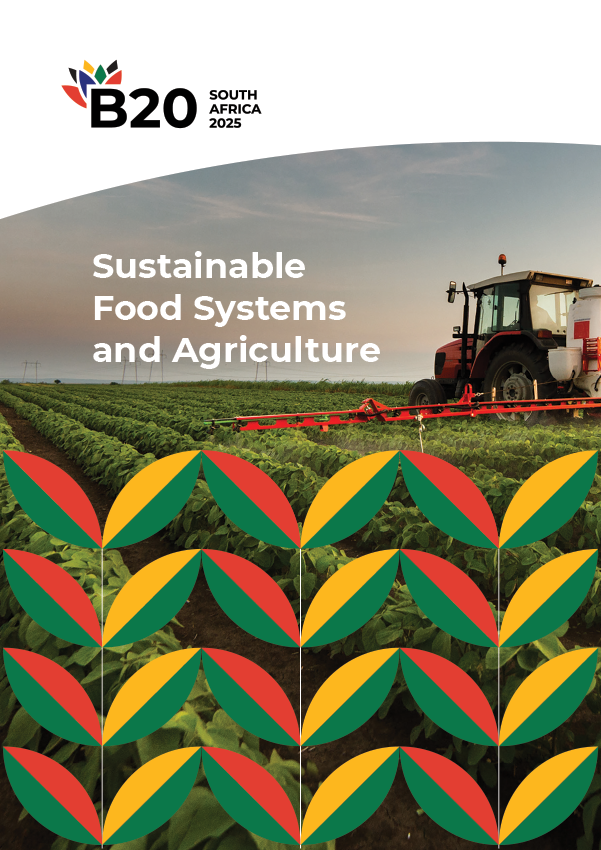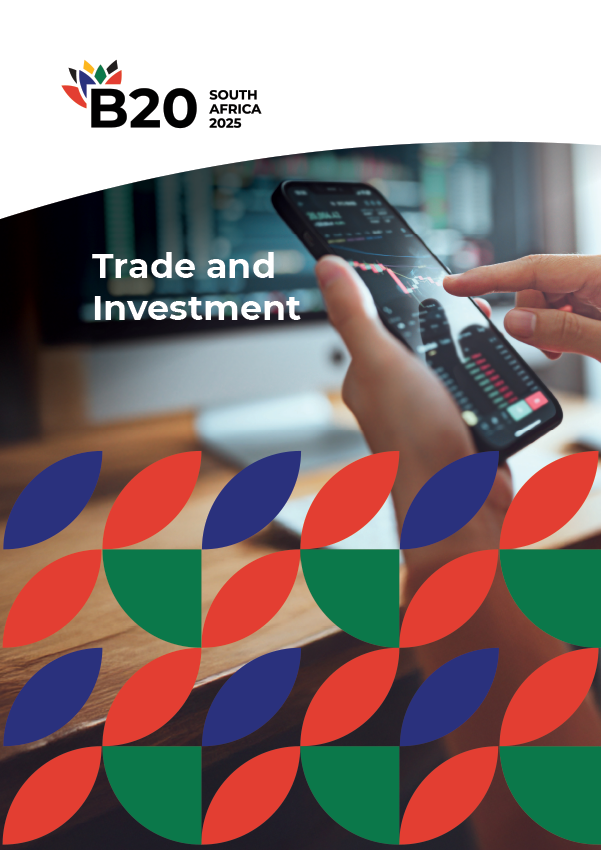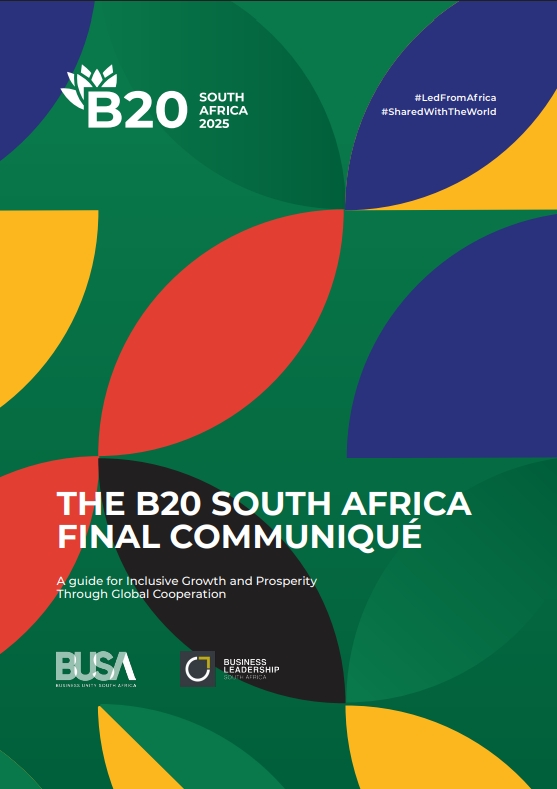
This communiqué marks the culmination of the B20 South Africa cycle; an ambitious, ground-up effort shaped by a unifying theme and a focused set of strategic pillars.

Last week marked a historic milestone – not only for South Africa, but for the entire African continent and the global business community. With immense pride and gratitude, I share that we have formally handed over 30 policy recommendations from the B20 South Africa to the G20 Presidency, ahead of the November Summit.
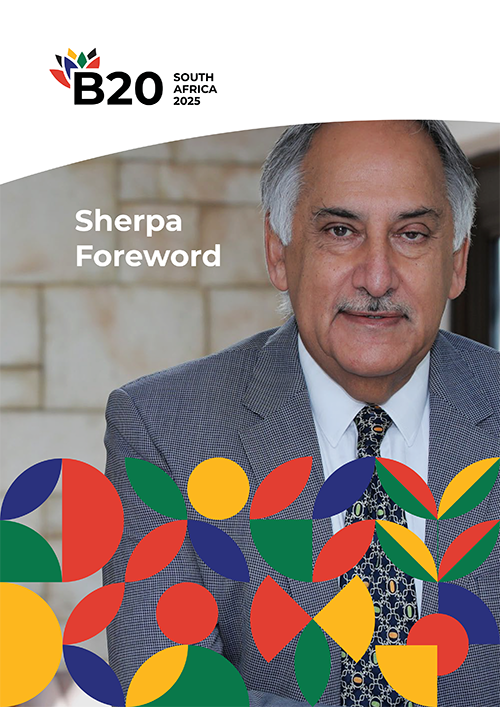

The Final Paper identifies the digital divide as a critical barrier to growth, with billions still offline and lacking digital skills. Recommendations include expanding inclusive infrastructure, embedding digital and AI education, strengthening ethical governance of emerging technologies, and advancing interoperable digital public infrastructure. These measures aim to ensure that digital transformation drives equity and trust.
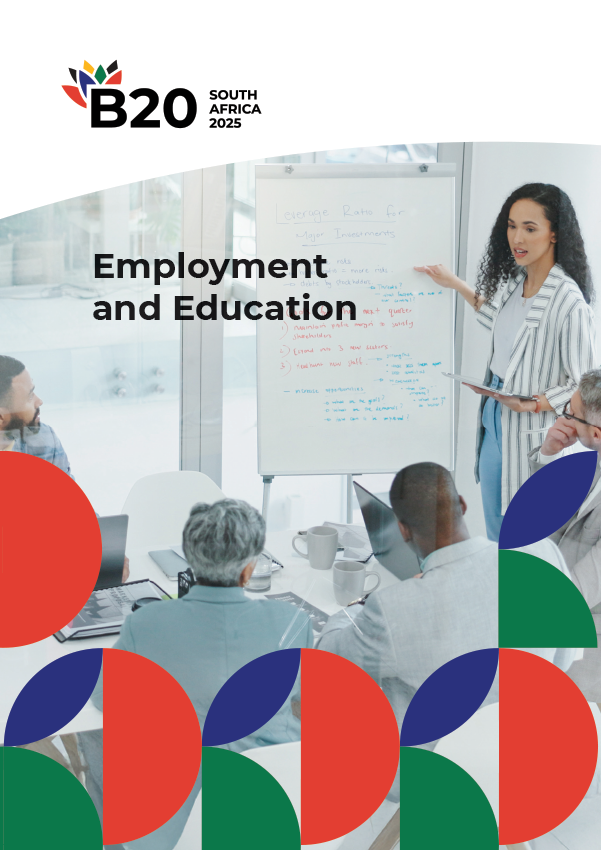
The Final Paper highlights the urgency of tackling global unemployment, skills mismatches, and gender inequality that limit inclusive growth. Recommendations focus on affordable early childhood education, youth employment pathways, and removing barriers to female participation. They also emphasise re-skilling, upskilling, and adapting to digital platform work to prepare a workforce that can thrive in rapidly changing labour markets.
